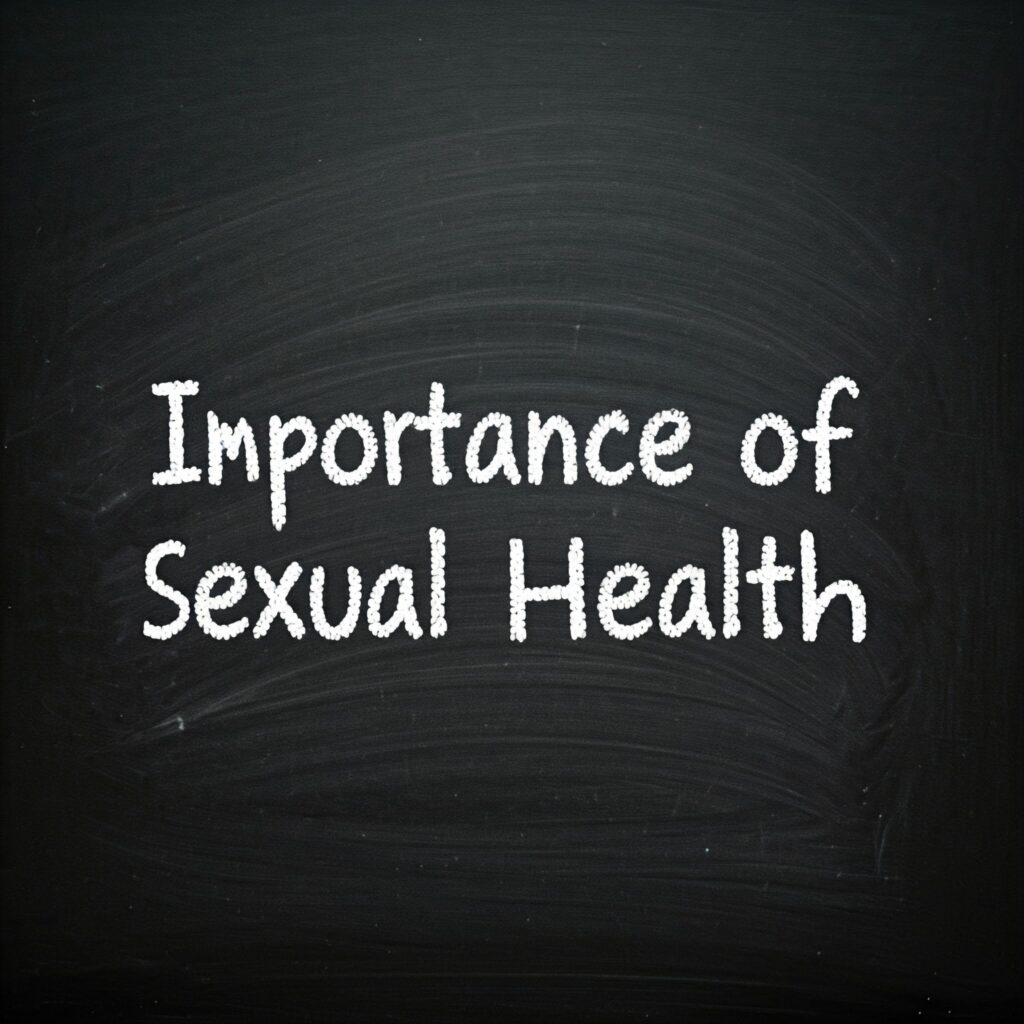Sexual health, encompassing physical, emotional, mental, and social well-being in relation to sexuality, is a crucial aspect of overall health and quality of life. According to the World Health Organization and other experts such as Dr Arun Ghosh, sexual health extends beyond the absence of disease, emphasizing positive and respectful approaches to sexuality and relationships.
Sexual Health and Mental Well-being
The intricate relationship between sexual health and mental well-being is increasingly recognized as a crucial aspect of overall health. Mental health conditions can significantly impact sexual function and satisfaction, while sexual health issues can contribute to psychological distress, creating a complex interplay between these two domains.
Depression and anxiety, two of the most common mental health disorders, often have a profound effect on sexual desire, arousal, and pleasure. Individuals experiencing depression may report decreased libido, difficulty achieving orgasm, or a general lack of interest in sexual activities. Similarly, anxiety can lead to performance-related concerns, body image issues, or fear of intimacy, all of which can negatively impact sexual experiences.
Conversely, sexual health challenges can exacerbate mental health issues. For instance, sexual dysfunction or dissatisfaction may lead to increased stress, lowered self-esteem, and relationship difficulties, potentially contributing to or worsening symptoms of depression and anxiety. This bidirectional relationship underscores the importance of addressing both sexual and mental health concurrently in healthcare settings.
The COVID-19 pandemic has further highlighted this connection, with studies showing an increase in psychological distress, anxiety, and depression, which in turn affected sexual behaviors and satisfaction for many individuals. This demonstrates how external stressors can impact both mental and sexual well-being simultaneously.
Promoting sexual well-being can have positive effects on mental health. Access to comprehensive sexual health services, including regular check-ups and education, can alleviate stress and anxiety related to sexual health concerns. Moreover, fostering open communication about sexual health in relationships can improve emotional intimacy and overall relationship satisfaction, contributing to better mental health outcomes.
It’s important to note that certain medications used to treat mental health conditions, particularly antidepressants, can have side effects that impact sexual function. Healthcare providers should consider these potential effects when prescribing treatments and work with patients to find solutions that address both their mental health needs and sexual well-being.
Recognizing the link between sexual health and mental well-being, some researchers argue for a more integrated approach to healthcare. This holistic perspective views sexual well-being as a crucial marker of health equity and a meaningful indicator of overall population well-being. By addressing sexual health concerns alongside mental health issues, healthcare providers can offer more comprehensive care that supports individuals’ overall quality of life.
In conclusion, the relationship between sexual health and mental well-being is multifaceted and bidirectional. Addressing these aspects of health in tandem can lead to improved outcomes in both areas, ultimately contributing to better overall health and life satisfaction for individuals and communities.
Role of Sex Education in Public Health
Comprehensive sexuality education (CSE) plays a crucial role in public health by equipping individuals with the knowledge and skills necessary to make informed decisions about their sexual and reproductive health. This education goes beyond basic biological facts, encompassing a wide range of topics that contribute to overall well-being and societal health.
One of the primary public health benefits of CSE is its effectiveness in reducing rates of unintended pregnancies and sexually transmitted infections (STIs), including HIV. Studies have consistently shown that high-quality sexuality education leads to positive health outcomes with lifelong impacts. By providing accurate information about contraception, safe sex practices, and STI prevention, CSE empowers young people to protect their health and that of their partners.
CSE also contributes to broader public health goals by promoting healthy relationships and addressing issues of gender equality and sexual diversity. This comprehensive approach helps reduce intimate partner violence and discrimination, which are significant public health concerns. By fostering respect for diverse sexual orientations and gender identities, CSE contributes to creating more inclusive and supportive communities, which in turn can lead to better mental health outcomes for LGBTQ+ individuals.
From an economic perspective, investing in CSE can lead to substantial public health cost savings. By reducing rates of unintended pregnancies and STIs, comprehensive sex education programs can decrease the burden on healthcare systems and social services. Additionally, by educating individuals about their rights and responsibilities regarding sexual health, CSE can contribute to increased use of preventive health services, such as regular STI testing and cervical cancer screenings.
CSE also plays a vital role in combating misinformation about sexual health. In an era where young people often turn to social media and the internet for information, providing accurate, evidence-based education is crucial. Public health initiatives that incorporate CSE can help counteract potentially harmful myths and misconceptions about sex and sexuality that may circulate online.
Furthermore, CSE contributes to public health by addressing the social determinants of health. By providing young people with comprehensive education about relationships, consent, and communication, CSE equips them with life skills that extend beyond sexual health. These skills can lead to better decision-making in various aspects of life, potentially impacting educational attainment, career prospects, and overall well-being.
It’s important to note that the effectiveness of CSE in promoting public health depends on its quality and comprehensiveness. Programs that are medically accurate, age-appropriate, and culturally sensitive have been shown to be most effective. Public health initiatives should therefore focus on implementing and supporting high-quality CSE programs in schools and community settings.
In conclusion, comprehensive sexuality education is a powerful tool in public health, offering wide-ranging benefits that extend far beyond individual sexual health. By promoting knowledge, skills, and positive attitudes related to sexuality and relationships, CSE contributes significantly to the overall health and well-being of communities and populations.
Comprehensive Sexuality Education Benefits
Comprehensive sexuality education (CSE) offers numerous benefits beyond traditional sex education approaches. CSE programs have been shown to delay sexual initiation, increase condom and contraceptive use, and reduce sexual risk behaviors among adolescents and young adults. By providing accurate, age-appropriate information about sexuality, relationships, and sexual health, CSE empowers young people to make informed decisions about their bodies and relationships.
Key benefits of CSE include:
- Improved knowledge about HIV, sexually transmitted infections, and pregnancy prevention
- Enhanced self-efficacy for HIV protection and favorable attitudes towards safer sex
- Increased ability to recognize and foster healthy relationships
- Better understanding of consent and personal boundaries
- Reduced incidence of intimate partner violence
- Improved communication skills with partners about sexual health
- Greater awareness of gender equality and sexual diversity
By addressing these critical aspects of sexual health and relationships, CSE contributes to the overall well-being of individuals and communities, promoting healthier attitudes and behaviors that extend far beyond the classroom.
Addressing Sexual Stigma and Anxiety
Sexual stigma and anxiety can significantly impact mental health and overall well-being, particularly for individuals in the LGBTQ+ community and those with mental health conditions. Research has shown that sexual stigma is strongly associated with poorer mental health outcomes, including increased anxiety, depression, and psychological distress.
For LGBTQ+ older adults, sexual stigma can have cumulative effects throughout their life course, decreasing quality of life and access to healthcare. Many have experienced verbal or physical abuse rooted in sexual stigma, leading to an increased risk for mental health problems. Higher levels of self-stigma are associated with greater psychological distress, substance use, and lower life satisfaction.
Individuals with mental health conditions also face sexual stigma, which can interfere with their ability to form romantic relationships and negotiate safer sexual behaviors. Many devalue themselves as sexual partners, and this internalized stigma extends beyond those with severe mental illnesses to include those with depressive and anxiety disorders.
To address sexual stigma and anxiety, several coping strategies and interventions can be effective:
- Seeking support: Connecting with others who share similar experiences through support groups or LGBTQ+-focused social activities can increase social support and reduce feelings of isolation.
- Self-care practices: Engaging in activities that promote relaxation and stress reduction, such as mindfulness, meditation, or creative expression, can help manage anxiety related to sexual stigma.
- Education and self-exploration: Learning about healthy sexual practices, consent, and diverse sexual orientations can help challenge internalized beliefs and broaden perspectives.
- Open communication: Discussing concerns with trusted individuals or healthcare professionals can create a safe space for addressing sexual stigma and anxiety.
- Professional support: Seeking help from LGBTQ+-affirmative therapists or mental health professionals specializing in sexual health can provide guidance and tools for overcoming sexual stigma and related anxiety.
- Advocacy and activism: Participating in efforts to address LGBTQ+ discrimination and stigma can positively impact mental health outcomes and create more inclusive environments.
- Challenging stigma: Openly discussing mental health and sexuality can help normalize these topics and reduce stigma.
It’s important to note that avoidant coping strategies can amplify the negative effects of sexual stigma on mental health. Instead, focusing on problem-solving coping techniques and seeking social support can be more beneficial in managing the impact of sexual stigma and anxiety.
By addressing sexual stigma and anxiety through these strategies, individuals can work towards improving their mental health, sexual well-being, and overall quality of life. Healthcare providers and mental health professionals should be aware of the impact of sexual stigma on their patients’ well-being and work towards creating supportive, inclusive environments that promote both sexual and mental health.
Summary
Sexual health is a crucial component of overall well-being, directly impacting physical, mental, and social aspects of health. Comprehensive sexuality education (CSE) plays a key role in public health by promoting safe practices, reducing stigma, and enhancing mental health outcomes. The intricate relationship between sexual health and mental well-being highlights the importance of an integrated approach in healthcare. Addressing sexual stigma and anxiety through support systems, education, and affirmative care can greatly improve life satisfaction and mental health outcomes, ultimately benefiting individuals and communities alike.






